- Home
- A. A. Attanasio
The Dark Shore (The Dominions of Irth Book 1)
The Dark Shore (The Dominions of Irth Book 1) Read online
The Dominions of Irth
Book One:
The Dark Shore
A. A. Attanasio
The Dark Shore
published by Firelords Press
Ignite your imagination!
Second Edition
Copyright © 2013 A. A. Attanasio
ISBN: 978-0-9836084-8-6
First edition published by Avon Books: 1996
Dominions of Irth; bk. 1.
Pen Name: Adam Lee
Library of Congress classification: PS3562.E317 D3 1996
http://aaattanasio.com/
Cover Art:
Shining Rainbow
www.shiningrainbow.net
Interior Illustrations:
John Bergin
http://web.mac.com/grinderx/Site/home.html
Map of Irth:
Brian Garabrant
To Nick Austin
for helping me find my way
through the dark within
that is itself a light
Acknowledgments
I am indebted to John Bergin for his conceptual panache in helping me visualize Irth. He went with me on my journey as west as darkness and accompanied me across the immense open dream to the Dark Shore. This novel is better for his company.
I will give you the treasures of darkness.
—Isaiah 45:3
Contents
Prelude: Death's Fences
Part One:
Irth
Cacodemons
Dogbrick and Ripcat
I Gather the Darkness
One Day in the Calendar of Eyes
Lord of the Nethermost
What Lives After
The Cloths of Heaven
Dark the Seed
A Maiden in the Fastness of Ogres
Part Two:
The Abiding Star
Thief of Shadows
Three Blind Gods
Ladder of the Wind
The Star Fallen
Strange Planet, Dying
The Stars under Our Feet
A Flesh of Dreaming
APPENDICES
The Gibbet Scrolls
Cast of Characters
Map: The Dominions of Irth
Here is a story from a world before all other worlds.
We begin at the beginning of time—under the Abiding Star.
The Abiding Star is the Big Bang.
In the first tP—the first instant of Planck Time—the universe is smaller than an atom: a quantum event. All of spacetime is energy, a single primordial photon.
In this cosmos of pure light, the numerous worlds of the Bright Shore appear. Among them is Irth. And upon the Irth, destiny walks the neverland of magic and casts shadows beyond Planck Time, out across creation and onto the Dark Shore that is the human soul.
PRELUDE:
DEATH'S FENCES
The power of the witch is in her hair. The ones who killed her knew this. They cut off her long tresses, tied them into devil's shoelaces, and bound her hands and feet.
Now she lies on her back, naked. Her blank, insensate stare reflects the night, the black of her pupils blown wide—and in them, inverted reflections of the star whorls, the spiral stairways we descend.
Our bodies fall out of lucent darkness. Ragged shards of starlight catch in our windy hair. Both of us race to her silently as light, quietly as pain.
But she is gone.
The ones who killed her knew what they were doing, and now she is gone. She has left behind the form we labored so hard to build. It lies on the forest floor like a discarded garment.
When we bend close and listen, we can hear the shadow of her life, fading yet singing. It breathes from within deep inner dark. This is the shadow of death. Despondency thickens.
Quickly, I step back. We must not listen too closely. We must not listen, or we will lose our souls before we find hers.
Where to look? Where else but in the world she occupied, in the forest. She is here somewhere.
You linger over her body and will not budge. I warn you: The music in death's shadow has elements of awe and enormity that dwarf the self. A wolf crying at its own echo. The soul is lost in these sounds. But you will not listen. You will not budge. So I go alone to find her.
Even through the darkness, I can see the footprints of her killers in the leaf litter of the forest floor. They run westward to where blunt hills surge. The tracks lead me through comfortless dark, along corridors of walnut and oak, to the spine of a hill. From that crest, I gaze down upon a river and a town.
The silver horn of the moon discloses serpent curves of water where the killers have taken the witch's soul, wanting to drown her. And there, in the slick water, her soul would have shriveled away—but for the town. The killers feared drowning her so close to their community. They feared releasing fetors—noxious vapors—near their families, and they carried her on. By this fear, there is yet hope for her soul.
But here the killers leave no more tracks. They wade through the shallows, and I cannot see if they have gone up or downstream.
The mud of the bank quivers like frog skin as I kneel to lay my hands upon the water. I would know this river that jellies forth from the old life of the hills. Its satin black length slides past the glittering lights of the town, and within its depthless mirror I feel all its names—Carrier of Shadows, Grassy Shoulders, Footsteps to the Wind. These are river names given by the aboriginal people whose tribes once dwelled here, names remembered by vague ghosts that still hover in these woods.
Wraiths of the forest gather on the embankment as I rub the water, feeling with me for the killers and the soul this river drowns. I rub the water and launch upon its stammering ripples the forest ghosts. Then I wait as the specters drift into darkness looking for the witch.
The town's wharf lanterns and dock lamps reflect in the river bend like an angel's fiery arm that extends across a stretch of silence and hands me a cry. The ghosts carry back to me this whimper of exhausted pain—this shadow flicker of life from the witch.
That is all I require. By that slim cry, I feel my way toward her, upstream. I approach silently over gravel bars, past the slow dismantling of willow banks and the spectral reflections of birch islands.
Soon I smell the fragrance of depleted rage. The killers have completed their work. Night spills around them with the dirty smells of the drowned soul. The evil red eyes of cigarettes and cigars pulse in the dark coves of the forest, where the killers smoke to cut the sour miasma of death.
Out of the foggy aura of the river, beneath the balding moon, I rise.
The red eyes brighten and fall with shrieks and howls of despair. The killers believe I have come for them. I have not. I do not pursue as they scamper away under fluttering moans.
I have come for the soul, and I find her on the muddy bottom of the river, shivering, full of perplexity and pain beyond forgetting.
The killers have ruined her. Yet she lives.
Within the glass sphere of her consciousness, new shapes swirl as though another form of life were possible. Of course, it is not. She is deformed. Never again will she fit into a form that could pass for human. Never again can she do our work for us here among autumn's brood and winter's whips. Never again will she dance for us under the spring moon or roll in the flower dust of summer and chant happy songs before the long boiling twilights.
She is ruined. A part of her soul is dead. An animula, an astral scavenger, already thrives off her necrosis. When I touch that dead part of her, it feels like deep isolation.
Sadly I lower her back into the water, and she cries. Oh, she cries! And a great sense of distance op
ens in me. The force of her life swells with her cries, then dissolves and vanishes like wishes.
The essential shadow of her secrecy remains. The shadow of death. The very shadow that captivates you at her body now holds me fast in the sleek waters of the river where her soul has melted wholly away.
An irrational feeling of enchantment grips me. It is desire, shining madly. It is the desire that speaks of our ancient life and the deep, sensual dark of the dreamer.
I cannot budge. The vacancies of her soul hold me here—vacancies filled with dark music that speaks of her.
The stream laps at my legs, urging me to walk along with it. But I will not budge. I will stay here for a long time, haunting this riverbank, just as you will linger in the woods where her body died, where you cannot remove your gaze from her face with its splattered blood welded in rays.
For a long time, I will remain here listening to the floating echoes of her despair. I will wait for the killers to return to the scene of their crime, wait for the hot taste of their blood to free me from my cold fascination with the soul's dark music.
And while I wait, this music speaks to me as though the soul were just a song someone played. Just a song.
/ |
The clank of winter wakes me from my murderous trance. The sun is not yet up, and smoke rises from the frozen river in star-spun veils.
I had become entranced watching things flow: autumn colors like a breathing fire, river currents, time...
The killers never returned. The cold sets me free from my trance of grief: Through a soul-land of snow and ice, I wander inside the death song of the witch...
Mist circles the white mountains. I return to her body, but it is gone. And you are gone, as well. The sun climbs through icy trees in starbursts of frazzled light.
Looking for you, I climb back into the sky.
Your large house above the clouds is empty, its blue walls blank as the sky around it. So is your alchemic laboratory between the stars. Its colossal chambers are devoid of the retorts, alembics, distilling coils, and furnaces that once preoccupied you.
You've gone back whence you came, back to the bright coast of first light, to a world inside the fiery origin of the universe. And you've taken all your alchemic gold, all the magical stuff you came to my cold world to create—all save these few flakes.
They gleam darkly in my hand like the dust of sunset.
A great being of light such as you would consider these motes insignificant. You probably never noticed them scattered so thinly on the floor. But to this cold creature, these traces of wonder are seeds of magic—raw power.
While I hold them, I live in two worlds at once. I experience the unimagined radiance of your fiery realm and yet remain a creature of darkness.
Striding through your lab's familiar astral hallways, walking into starry rooms filled with your absence, I determine to go back down. I will return to the forest, and I will plant these seeds of magic in the fertile ground of the Dark Shore.
In time, if I work the soil right, if I apply correctly the mysteries you have taught me, the power will grow. Then I will have the magic to follow you.
I know where you will lead me. To the Bright Shore. To where you have taken the witch's spirit, away from its broken body and deformed soul. Back to its place in the light of creation.
/ |
Her name was Lara. She was a wild child when we found her. A forest child. We saved her from beasts and gave her power over all the forest.
A thin blue flame ran under her skin when she danced for us.
Like rain's most lovely pale daughter, like fog, she floated on the earth. Her grace healed all who needed her, and she served the ill and hungry as well as she served us. She used her magic so ingenuously and with such largeness of heart, I fell in love with her. You did, too—or so I thought. Wasn't it our love that had changed her from animal-child to beautiful cosmic dancer?
Since she died, her fragrance is everywhere.
/ |
Nothing binds me to this earth now that she is gone. Nothing but the shackles of time, and I am working hard to break those.
It was my fault she died. You chose me among all others to help you. I was chosen, because I was strong. I was supposed to be strong enough to keep my people in line. You trusted me. Worse—she trusted me.
I failed, because I miscalculated evil. I got so absorbed in my love for Lara, I failed to see how she frightened the others.
And she did frighten them. Wind talks with the sky, trees talk with the wind, and she listened to the trees and told their secrets to whoever asked. Talking to the unseen, collecting spider's milk under the moon, singing people's pain back into their wounds, she frightened even as she worked so hard to help.
I failed: I killed her with my love. I should have been more detached. You, too, should have kept an eye on her. But you were preoccupied with your alchemy, making your precious gold.
Yet, really, how could I have noticed that the others feared her as much as they did when they feared me more? That was how you wanted it, wasn't it? You wanted a strong man to help you gather your alchemic ingredients and to keep the others at bay while you plied your occult craft.
You worked like the wind. You came and you went.
Desire, dreams, and death. That's what the others saw in her. I should have noticed sooner the obvious looks of fear in their faces when they met her. I ignored the obvious, because I had become used to seeing invisible things.
/ |
The sea grows old in its bed—and I have left that weary world behind. I have cut through the shackles of time. I have climbed higher than the sky.
The flakes of alchemic gold you left behind all those years ago have grown powerful enough to transform me into a being like you, a being of light.
And now I am sufficiently strong to leave the Dark Shore and climb a ladder of stars into your luminous world.
Lara's spirit guides me, and I feel no nostalgia for the cold reality I leave behind. My grief grovels in weeds. I rise far above it, toward fathoms of light. I soar into a new world beyond death's fences.
Part One
Irth
17
Among the dynasties of creation, first stands Irth. First out of the fiery Beginning. First into the abyss of dark and cold.
18
Irth is the original place. It lies at the very threshold of origin and is made from shadows cast in the morning of time by the earliest rays of Being. Perched between the nameless power of the Beginning and the unreckonable emptiness of the Gulf, Irth spins, weaving day and night, chance and fate.
—Origins 2:17-18
Silence listens.
—The Gibbet Scrolls
Cacodemons
At the time of the Conquest, a loaf of bread in most dominions cost a newt's-eye. Small as a child's pinky nail and lustrous black with vermilion and emerald razor lines, the hex-gem known as newt's-eye carried the smallest possible charge of Charm—just enough to keep a healthy person awake one night, to heal a small wound, to boil three cups of blue tea, thread radiance through seven nights, stir a wisp of breeze for several hours, or buy an excellent loaf of nut bread still steaming on the baker's palette.
And that was just how the waif Tywi spent her last newt's-eye. She had kept this tiniest of hex-gems in the heart pocket of her tinker's vest for luck. Twenty-seven days it had soaked in her body warmth while she looked for work among the factories and the shanty villages of smithies and tool-and-die shops.
She found no work. For most of those days, she lived out of trash bins. When she could abide hunger no longer, she decided to spend her last newt's-eye.
In the indigent desert dominion of the Qaf, upon the barren seacoast realm of Zul, among the smoldering alchemic factories of the sea cliff city of Saxar at a narrow, windowless bakery in Amble-by Lane, she purchased a fragrant loaf of nut bread. She had little choice: either buy bread or use the Charm to cure her exhaustion and ward off sleep one more night.
At least, she would not be hungry tonight when she fought drowsiness and the perils of dreaming.
The baker's son used the newt's-eye as one of three to fill a point in the triangular husk of an arrowhead nut. That composed the smallest amulet that could exist: three newt's-eyes linked to a quoin. The quoin could be any small flat surface. The rich set their newt's-eyes in gold. For the baker's son, the flat, three-cornered pod of a common arrowhead nut proved sufficient, for he would be spending this amulet in the festal parade.
With a single quoin, one could dance, sing, and march all night and at dawn return refreshed to the factory line. The baker's son made a dozen to pay his merry way to morning as a parade dancer.
The amulet with Tywi's newt's-eye went to a bouncer at a throb palace for admittance to the dance hall. The next day, the bouncer fit that quoin into a prism, a pyramid made from four quoins, and paid that and six other prisms to Whipcrow, an unscrupulous factory manager, for a better position on the assembly line.
Whipcrow gave those seven prisms and thirteen more to 100 Wheels, a security agent who guarded the warehouses the manager sometimes pilfered. 100 Wheels had a charmwright work the prisms into an elaborate shoulder-guard amulet for the city master.
The city master, pleased with the gift, renewed 100 Wheels' work contract and, ever eager to curry favor with his own superiors, included the intricate amulet in his regular tribute to the realm's margravine, her ladyship the sorceress Altha.
The margravine's husband, Lord Hazar, patron of the arts, admired the amulet's clever assemblage of primitive prisms shaped into a modern shoulder guard. The quaint fact that some of the amulet's quoins consisted of nutshells culled from the street weeds of Saxar inspired him to offer the piece as an emblem of his remote realm to their powerful ally, the wizarduke and regent of all dominions, Lord Drev.

 The Conjure Book
The Conjure Book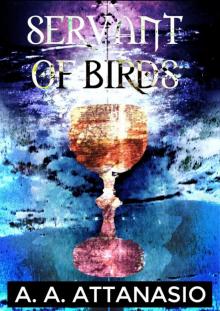 Servant of Birds
Servant of Birds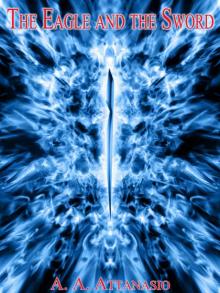 The Eagle and the Sword (The Perilous Order of Camelot Book 2)
The Eagle and the Sword (The Perilous Order of Camelot Book 2)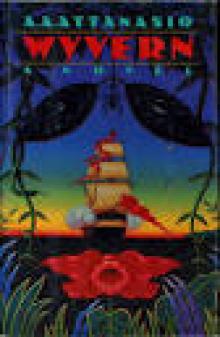 Wyvern
Wyvern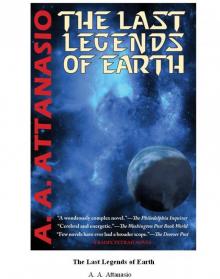 The Last Legends of Earth
The Last Legends of Earth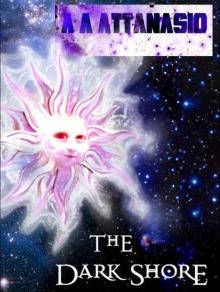 The Dark Shore (The Dominions of Irth Book 1)
The Dark Shore (The Dominions of Irth Book 1)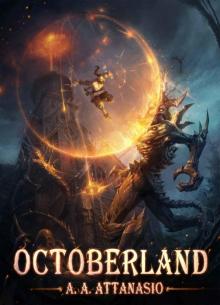 Octoberland (The Dominions of Irth Book 3)
Octoberland (The Dominions of Irth Book 3)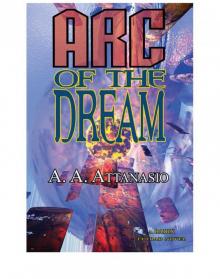 Arc of the Dream
Arc of the Dream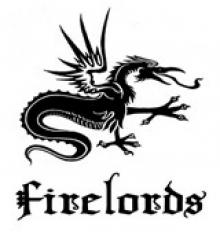 p1b6fn7sdh1ln0g4v1pkvkuqim54
p1b6fn7sdh1ln0g4v1pkvkuqim54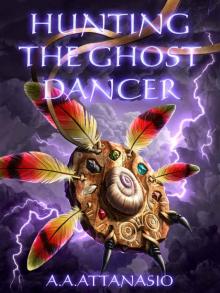 Hunting the Ghost Dancer
Hunting the Ghost Dancer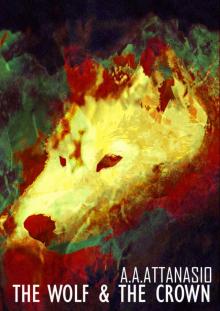 The Wolf and the Crown (The Perilous Order of Camelot Book 3)
The Wolf and the Crown (The Perilous Order of Camelot Book 3)